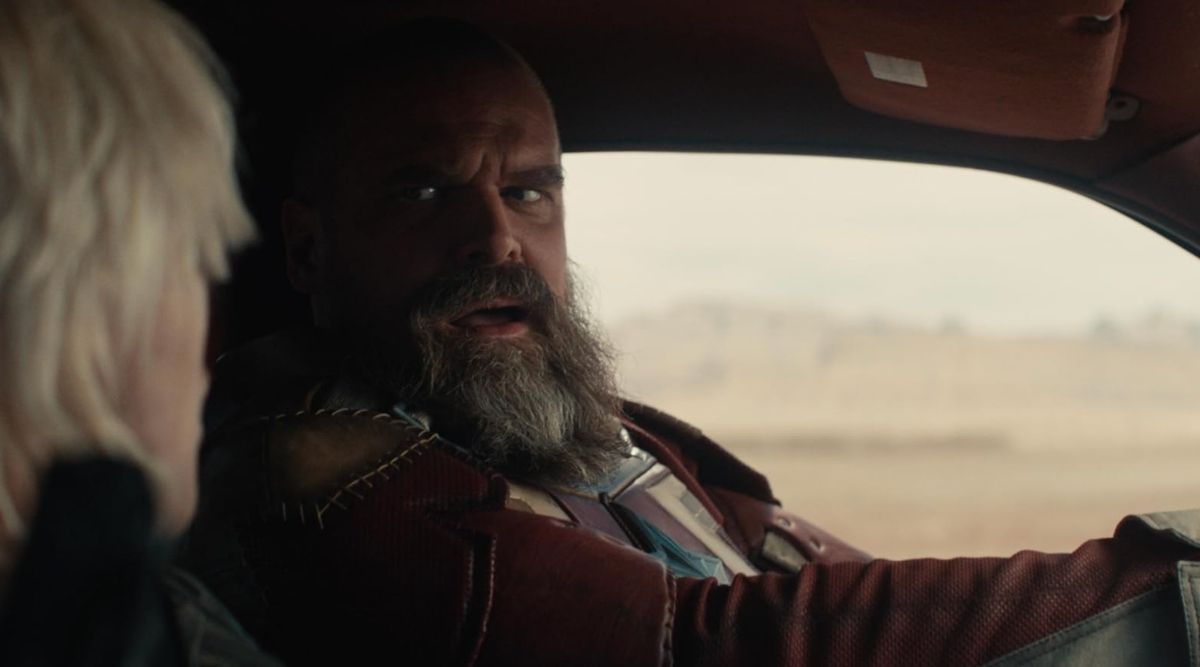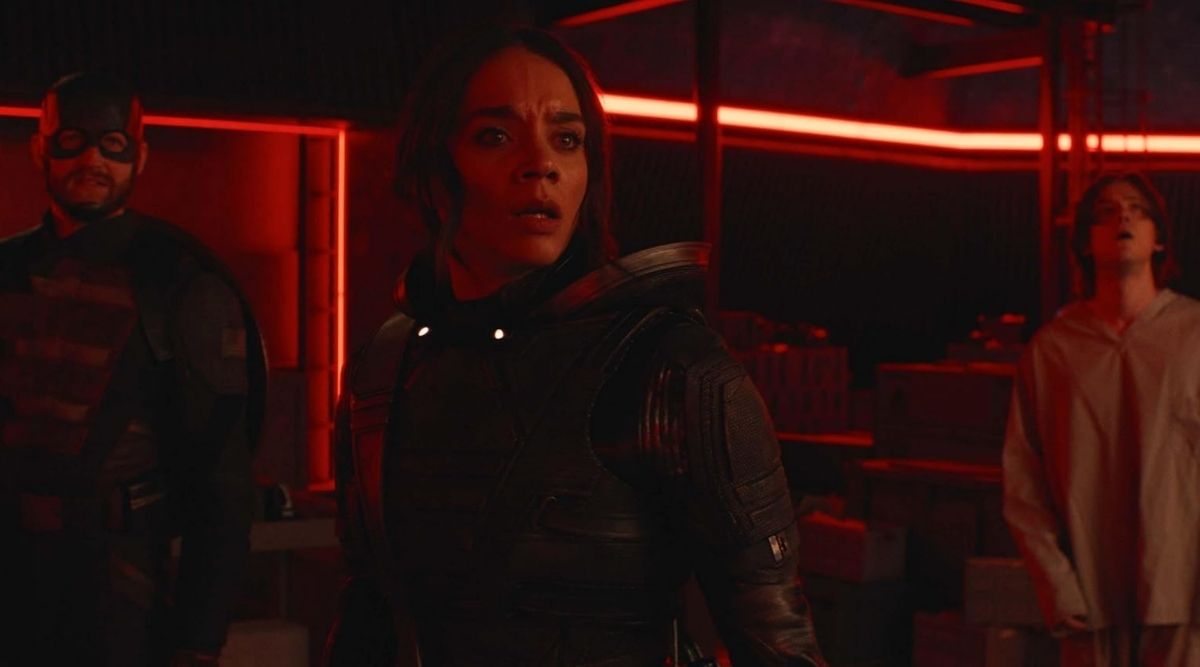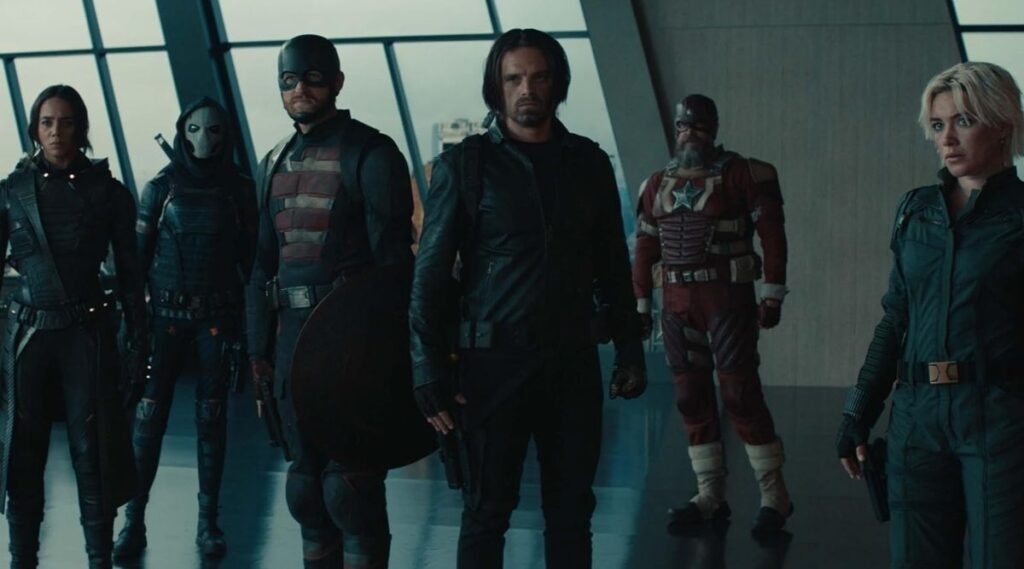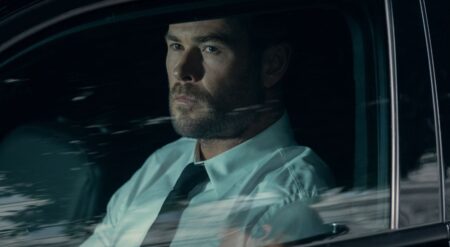If anything encapsulates this post-Endgame era of the Marvel Cinematic Universe, it’s an ingrained adherence to the tenets of “Checklist Cinema.” Villains must, at some point, meticulously explain their evil plan, heroes are required to ceaselessly interject with wisecracks, and a third-act, population-consuming threat needs to be swiftly stopped. These are but a few of the mandated items Director Jake Schreier’s Thunderbolts* must satisfy before it’s finally permitted to go against the grain and carve an identity for itself. But when Schreier’s film reaches that milestone, it’s too little, too late.
For a film about anti-heroes rebelling against their imposed instincts and labels, Thunderbolts* feels acutely stunted by the limitations levied by its shared universe, where the mold it’s forced to fit into obfuscates any new, daring lens. What remains is a superhero experience that, despite its best efforts to tackle the intricacies of mental health and trauma, feels purpose-made to disappear and blend into the MCU’s ever-expanding production line.
At the heart of Thunderbolts*’ rag-tag group lies Black Widow assassin Yelena Belova (Florence Pugh). After running countless covert operations for Valentina Allegra de Fontaine (Julia Louis-Dreyfus), the CIA’s shady director facing impeachment, Yelena finds herself disillusioned with her lot in life. Burdened by her traumatic past and lonely existence, she decides to call it quits after one last job.
Upon infiltrating a hidden base to eliminate a target, Yelena finds herself caught in a death trap, alongside other superpowered operatives, some of whom were contracted to kill her. As a scuffle between Ghost (Hannah John-Kamen), John Walker (Wyatt Russell), and the bumbling Bob (Lewis Pullman) ensues, they soon realize they were all set up by Valentina. As they’re all evidence of her corrupt dealings, she’d rather see them destroyed. After joining hands with Yelena’s father, Red Guardian (David Harbour), and Superhero-turned-congressman Bucky Barnes (Sebastian Stan), the misfit bunch works to escape and take the fight to Valentina while confronting their dark pasts.
Thunderbolts* recycles familiar tropes and tired punchlines.

Despite its best efforts, the first half of Thunderbolts* unfolds as the amalgamation of all the tropes, character beats, and recycled humor the MCU has accumulated across its almost 20-year iteration. While the notion of having five opposing personalities trapped in an isolated location and forced to overcome emotional and physical hurdles sounds like a fresh rebuttal to the familiar formula, it’s mired in thin characterization and predictable, interjecting comedy that strips any semblance of sincerity from the film.
Whether the troupe finds themselves in a hairy situation or a bona fide brawl, a ceaseless barrage of punchlines and one-liners undercut any sense of tension or stakes Thunderbolts* seeks to foster. The screenplay dredges up the corniest and laziest of pop cultural references to retain a pulse and add inklings of personality to its ensemble. It’s all part of an attempt to establish a cavalcade of quirky, endearing personas, but no one character behaves authentically enough to feel relatable.
Instead, what remains is a bevy of one-note caricatures that are reduced to the same few affectations and mannerisms. Harbour’s Red Guardian constantly howls, Stan’s Winter Soldier is reduced to the identical few smoldering glares, and Russell’s disgraced former Captain America is the sole accumulation of his arrogant outbursts. It’s a quality that’s especially surprising given co-screenwriter Joanna Calo, famous for her work in The Bear, is no stranger to fostering nuanced and textured portraits of broken characters.
The rare moments of kinetic, bravura filmmaking—especially in an early, intricately staged oner—also fall prey to the demands of the quippy screenplay. Sequences steeped in the crafty, eye-catching spectacle are shrouded in endless narration, voice-over, or bantering. On a purely visual level, Thunderbolts* is rarely afforded the space to breathe and develop on its own, often playing second fiddle to the trite interactions of its characters.
Not every character is treated equal in the latest Marvel project.

It also doesn’t help that the film’s production design borrows too liberally from other films, with one LED-lit room practically lifted from Alex Garland’s Ex Machina. With so much of the MCU’s output reliant on shoddy CGI, it’s unfortunate that Thunderbolts*’ emphasis on practical sets and effects fails to foster a distinct identity, manifesting as a hodgepodge of bolder influences.
Once Thunderbolts* satisfies its obligatory checklist, it enters a creative flurry in its final act. It’s an approach that goes beyond mere fisticuffs to infiltrate the tortured mindscapes of its heroes, craftily shifting from one bad memory to another. In these moments, Thunderbolts* operates in rare territory for the MCU, looking inward at its characters, and the emptiness of the shame and grief that occupies them. Yet, it’s a daring final act that doesn’t quite reach its potential, dulled by the broad-stroked characterizations that led up to it.
Despite being a film about a group of heroes, Thunderbolts* only finds the time to give Pugh and Pullman their flowers. The rest of the capable ensemble isn’t given the same opportunity to flex their legs and rise above the few inflections the screenplay demands. While Thunderbolts* is one of the better MCU outings in recent years, challenging the emotional envelope of its contemporaries, it only musters a half-hearted attempt.
Thunderbolts is now playing in theaters everywhere.
Thunderbolts
-
Rating - 5.5/105.5/10
TL;DR
While Thunderbolts* is one of the better MCU outings in recent years, challenging the emotional envelope of its contemporaries, it only musters a half-hearted attempt.







